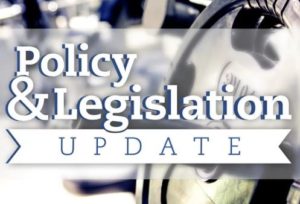
New Rule – Salary Threshold for Overtime-Eligible Employees
October 2, 2019 | Bob Hoffer, DBL Law
U.S. Department of Labor Raises Salary Threshold for Overtime-Eligible Employees
September 24, 2019 – The U.S. Department of Labor issued a final ruling today, raising the salary cut off for employees eligible for overtime to $35,568. The new rate takes effect January 1, 2020.
Under the Fair Labor Standards Act, employees who are exempt from overtime must be paid a salary that is at least the threshold amount while also meeting certain duties tests. Employees who do not meet those minimum requirements must be paid 1.5 times their regular hourly rate for hours worked beyond a 40 hour work week.
This new rule raises the salary threshold to $684 per week from $455 a week, or $35,568 from $23,660 annualized. Employers are expected to reclassify more than a million exempt employees to nonexempt status while raising pay for others to ensure they are above the new threshold.
The ruling also raises the threshold for highly compensated employees from $100,000 annually to $107,432, of which $684 must be paid weekly on a salary or fee basis.
For FLSA executive, administrative and professional exemptions employees must perform certain duties and earn at least the salary threshold. However, under a special rule, highly compensated employees are eligible for exempt status if they meet the already-established reduced duties test criteria, namely:
- Employee’s primary duty must be office or non-manual work.
- Employee must “customarily and regularly” perform at least one of the bona fide exempt duties of an executive, administrative or professional employee.
The new rule does not include automatic adjustments to the exempt salary threshold, something that was proposed during the Obama administration in 2016.
DBL Law recommends that employers take immediate action by reviewing records of those who are earning below the threshold. “Individual reviews of job duties and salary structure will help determine which positions should be restructured, reclassified to nonexempt or given salary adjustments to ensure compliance with the applicable exemption criteria,” said Bob Hoffer, managing partner.
-end-